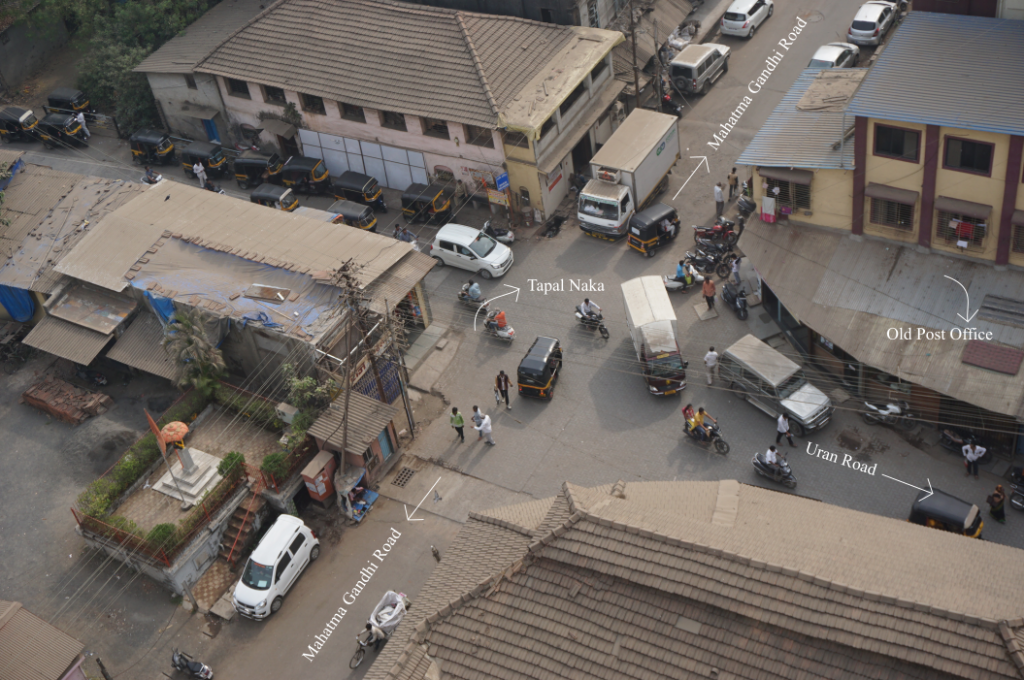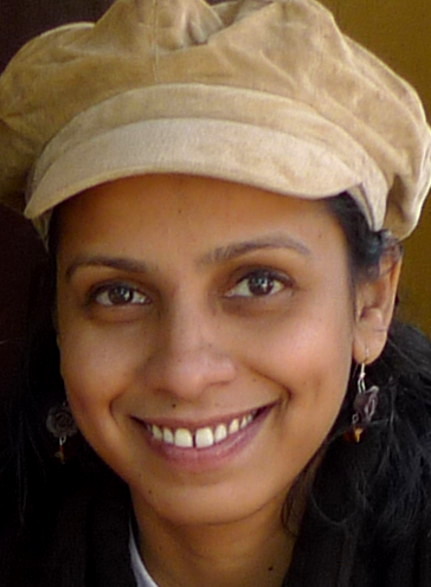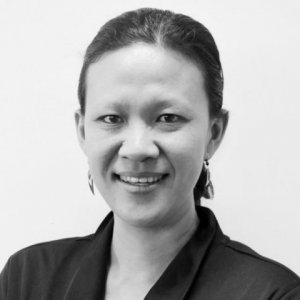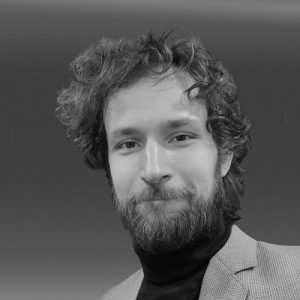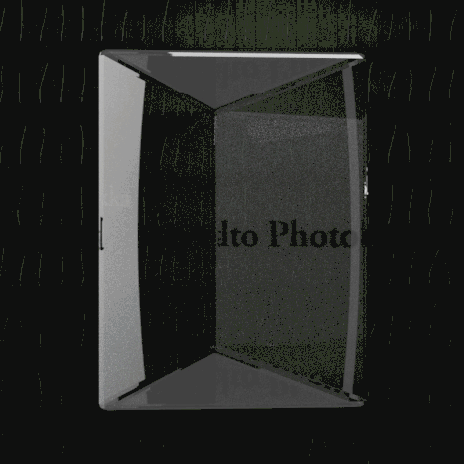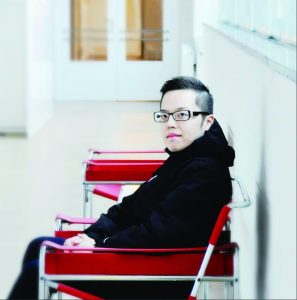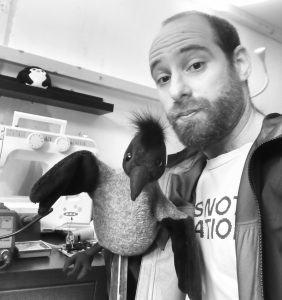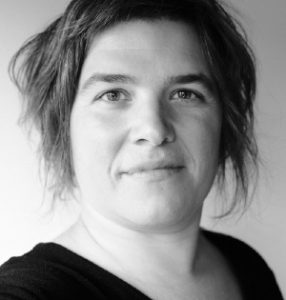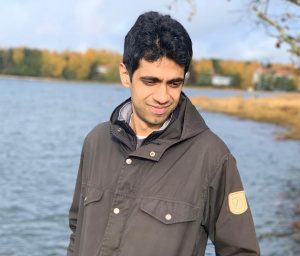WELCOME TO THE FIRST NEW MEDIA DOCTORAL SEMINAR OF 2022!
We kindly welcome you to attend the first New Media Doctoral Seminar of the Spring semester! The seminar will take place in Zoom today starting at 16:30 and ending at 18:30 (UTC/GMT+2, Helsinki, EEST). Neha Sayed will be presenting her work ‘The changing meaning of an urban place’. The seminar is mediated by Professor Lily Díaz-Kommonen.
PRESENTATION
‘The changing meaning of an urban place.‘
by Neha Sayed
ABSTRACT
The research contribution lies in presenting an approach to study the meaning of place for design intervention and exploring the role IoT technology may play in the changing meaning of place. It also contributes to the IoT paradigm by indicating a pro-community approach for technological development. The research contributes to the urban planning discipline by revealing the disparity in the meaning of a place. More immediately, the project contributes to new media research by indicating the role of media studies in the developing understanding of IoT.
BIO
Neha Sayed is basically an architect from Mumbai. She has done her MFA in Experience Design from Konstfack, Sweden. Before pursuing her PhD at the Department of Media, she has a done a combination of architectural practice, teaching and design research.
She started her tenure as a doctoral student in January 2016. Part of ‘Systems of Representations Research Group’, she is advised and supervised by Professor Lily Diaz-Kommonen. Her research is focused on assessing impact of sensor driven technologies on urban precincts. As part of her doctoral research, she conducted her fieldwork in a traditional port town on the west coast of India by adopting a multidisciplinary approach.
LAST NEW MEDIA AND VCD JOINT DOCTORAL SEMINAR OF THE YEAR – Thursday, 16 December 2021
WELCOME TO THE LAST JOINT DOCTORAL SEMINAR OF 2021!
The last joint seminar for this year will take place on Thursday, 16 December, and will be held virtually on Zoom starting from 15:15 (UTC/GMT+3, Helsinki. Please see link below).
Mediated by Professor Masood Masoodian, we have a very interesting presentations by New Media DA candidate Dr. Eunice Sari.
Zoom link: Click here to join the seminar!
PRESENTATION
‘Toward Digital Transformation in Education in Indonesia’
by Dr. Eunice Sari
ABSTRACT
When the Covid-19 pandemic struck the world, most schools could not operate like normal and a lot of stakeholders were deeply affected including students, teachers, parents, and governments. The emergency mode has pushed every stakeholder to go beyond their comfort zone, to ensure appropriate education can still run and we do not rob the students’ rights for education. This talk will highlight several insights gained toward digital transformation in education in Indonesia from three personal case studies (2020-2021). These insights will be discussed also in light of the works done by the author in a similar area in the past.
BIO
Eunice Sari is a UX Design Researcher with more than 18 years of experience serving corporate clients around the world. She is also the CEO and Co-Founder of UX Indonesia and Customer Insight Pty Ltd (Australia), leading service design projects and initiatives in empowering digital transformation for global organizations. As a Designer and Researcher, she loves working in the field, building empathy with people she designs for.
FIRST NEW MEDIA AND VCD JOINT DOCTORAL SEMINAR OF THE SEMESTER – Thursday, 21 October 2021
WELCOME TO THE FIRST JOINT DOCTORAL SEMINAR OF THE AUTUMN!
This first joint seminar for this academic year will take place on Thursday, 21 October, and will be held virtually on Zoom starting from 15:15 (UTC/GMT+3, Helsinki. Please see link below).
Mediated by Professor Masood Masoodian, we will be starting strong with two very interesting presentations by VCD DA candidates Nicola Cerioli and Dohee Lee.
Zoom link: Click here to join the seminar!
PRESENTATIONS
‘Understanding complexity to improve the visualisation of complex datasets’
by Nicola Cerioli
In the context of information design, the term “complexity” is often used without a clear definition. This implies a lost opportunity to frame the design problem and structure the design process in a way that is conscious of complexity. My research aims at building a coherent design framework to work with complex datasets in the domain of information design and data visualization. Firstly, a definition of complexity is proposed; drawing from the work of Murray Gell-Mann, and hybridizing his definition with semiotic theory. This will open up different design possibilities on three different, although interconnected, levels: the nature of the represented data, the interface, and the mental model of the user. By adopting this new perspective, several tools and paradigms from philosophy, cognitive psychology, mathematics, and computer science will become available as support to the design process. The object of this research is to explore the different possibilities that a comprehensive understanding of complexity can bring to the information design and the data visualization design process.
Nicola Cerioli is a doctoral candidate in the Aalto Visual Communication Design group. He is interested in the visualization of complex data, to further the understanding of multifaceted phenomena. For this purpose, he studies the synergies of design methodologies, mathematical methods, and philosophical frameworks.He is collaborating as a project researcher in the FINNGEN project, exploring new methods to visualise molecular biology and health care data.
/ / / / / / / / / / / / / / / / / / / / / / / / / / / / / / / / / / / / / / / / / / / / / / / / / / / / / / / / / / / / / / / / / / / / / / /
“A systematic co-creative approach to evaluating arts and health interventions for creative well-being of older adults”
by Dohee Lee
Although older adults’ engagements in arts and design-based interventions have shown positive outcomes in terms of their health and well-being, evaluations of such interventions have rarely taken into account various elements that they consider important in contributing to their creative well-being and quality of life. We will present a narrative interview-based study we have conducted in Korea and Finland with multiple stakeholders, investigating ageing-friendly co-creative approaches to evaluation of arts and design-based interventions for health and well-being. By considering a range of factors – such as artistic and aesthetic values, ethical concerns, and evaluation measures – we propose an evaluation framework that would enable multiple stakeholders – including older adult participants, arts and health practitioners and facilitators, and arts organizations and agencies – to monitor, support and inspire each other systematically through better partnerships in resolving transdisciplinary challenges in such interventions. In particular, we focus on the potential of late-life creativity in supporting older adults in becoming more active participants in such processes, by utilising the knowledge they have accumulated through their own ageing. The aim of the framework is to take a cyclic approach to fostering collaborative co-creative relationships that seek alternative solutions, while dealing with the complexity of implementing arts and design-based interventions.
Dohee Lee is a doctoral candidate in the Aalto Visual Communication Design group. She has a MA in Material Futures with international working experiences in different communities in collective forms. She believes in the combination of design narratives and social aspects that she has been doing qualitative social design research and project coordination in various geographical, ecological, cultural, and social contexts. Her research aims at developing design strategies for social integration and social well-being of older adults through arts & design practices.
PHOTOGRAPHY OFF THE SCALE – Talk by Jussi Parikka – Thursday, 20 May 2021, from 15:00 – 16:00
PHOTOGRAPHY OFF THE SCALE
Talk by Jussi Parikka
Thursday, May 20th on Zoom from 15:00 – 16:00
Doctoral Seminar – Open to everyone!
When: Thursday, May 20th, 2021
Time: 15:00 – 16:00
Zoom link: https://aalto.zoom.us/j/66102166387
INFO
“For the inaugural Aalto Photo Talks, we have invited media theorist Jussi Parikka as our guest speaker. Parikka has written extensively on new media and digital culture. His writings unravel the historicity of emerging media, tracing our past, articulating our present and imagining our future relationship with technology. In his recent publication Photography Off the Scale, Parikka turns his attention to operational images and image en masse. From the mass image in vernacular culture to transformations of photography in contexts of big data and artificial intelligence, the essays in the book explore the massification of photography. During the talk, Parikka will present his work and his recently-published co-edited photo theory anthology Photography Off the Scale. The presentation will be followed by a casual Q&A discussion.
The talk is open to public and we welcome Aalto students from the Department of Media and other disciplines to join us. Please also feel free to invite students from outside of Aalto.”
You can download the introductory article using the link, under the tab ‘resource’ here.
SPEAKER BIO
Jussi Parikka is Professor of Technological Culture & Aesthetics at University of Southampton and visiting Professor at FAMU at the Academy of Performing Arts, Prague. He is also Docent/Dosentti in Digital Culture Theory at University of Turku. He is the project director for “Operational Images and Visual Culture” (2019-2023, funded by the Czech Science Foundation). Jussi’s books include Koneoppi (2004), Digital Contagions (2007), Insect Media (2010), A Geology of Media (2015), as well as What is Media Archaeology? (2012) alongside several edited collections, including one on Erkki Kurenniemi (Writing and Unwriting Media Art HIstory, 2015, with Joasia Krysa). Recently, he published the co-edited Photography off the Scale (2021, with Tomas Dvorak) and The Lab Book (co-authored with Darren Wershler and Lori Emerson) is forthcoming later in 2021. Jussi also serves on Ihme Helsinki advisory board.
For more info and Jussi Parikka’s blog: http://jussiparikka.net
ABOUT AALTO PHOTO TALKS
Aalto Photo Talks is a series of conversations with thinkers, theorists and practitioners of photography with the aim to expand the notion of photography and explore interdisciplinary connections. The talk is organized by doctoral candidates from Aalto Photography. Although it may take different forms, most talks are organized as casual conversations with the invited guest for a free-flowing exchange of ideas and questions.
For any questions, please contact: Sheung Yiu // Aalto Photo Talks
NEW MEDIA DOCTORAL SEMINAR – Thursday, 18 March 2021, 16:30 – 19:30
Welcome to the third New Media Doctoral Seminar of 2021! The seminar will be held virtually on Zoom on Thursday 18th March from 16:30 to 19:30 (GMT + 02.00, Helsinki, EEST).
Mediated by Professor Lily Díaz-Kommonen, there will be two extremely interesting presentations with a Q&A discussion taking place afterwards.
Presentations are open for everyone, welcome!
PRESENTATIONS
‘Weaponized memes in China: Multimodal discourse analysis of the visual rhetorical appeals of Chinese political memes’
by Ningfeng Zhang
ABSTRACT
This study aims to apply multimodal discourse analysis as a theoretical point of entry to define the taxonomy of different rhetorical appeals of political memes in China’s most popular mobile application Wechat. The study views “internet memes” as a form of visual rhetoric, planning to analyze them respectively from representational, compositional, and interpersonal perspectives. The material consists of 357 internet memes posted on Wechat and collected by 10 active Chinese Wechat users in China during July 2019 – January 2021, their referential contents covered a series of social and political events occurring in China, including the Hongkong protest, the outbreak of Covid-19, the Sino-West relationship during the pandemic period and so on. Multimodal discourse analysis was applied to understand the visual contents, compositional forms, and visual arguments formed communicated via those memes, and ultimately concludes the different visual rhetorical appeals reflected in them. It is both a methodological and theoretical attempt to expand the understanding of the visual rhetorical study and how political memes function in the participatory media culture within a specific social, cultural, and political context.
BIO
Ningfeng Zhang is a doctoral candidate currently working as a new media researcher with Prof. Dr. Lily Díaz -Kommonen. His research interest focuses on the social, cultural, and political relevance and the generation mechanism of internet memes in the context of Chinese media environment, exploring the mechanism of how internet memes, as a form of visual rhetoric, a propaganda entity, as well as a facet of citizen journalism, generate, mutate and proliferate in a highly homogeneous media environment.
‘Intergroup Contact via Telerobtic Puppetry’
by Avner Peled
ABSTRACT
Following the premise of Intergroup Contact, established by Gordon Allport in the 1954 publication The Nature of Prejudice, I am investigating forms of communication that can reduce prejudice between groups in conflict and improve intergroup relations. Technological mediation supports contact in violent conflict scenarios where organizing face-to-face contact is challenging, even more so in light of the COVID-19 pandemic. Online contact forms suffer from a lack of agency, a limited set of nonverbal cues, and an impaired turn-taking flow. Virtual Reality supports user engagement but enforces a mind-body split and a dissociation from terrestrial grounds. I, therefore, propose remote-controlled robots (telerobots) as a way to add corporeal depth to mediated contact, situating a midpoint between online communication and a face-to-face meeting. For this research, the chosen form of implementation for intergroup contact is Telerobtic Puppetry. Puppetry (as well as virtual presence) evokes a hybrid state between object and subject, puppet and puppeteer. A hybrid object absorbs prejudice and problematizes it. Deindividuation of the puppet-avatar turns into a performance of group identities and categorization; a lack of signification opens up a path for self-expression. Design-based research and user surveying are now underway toward a telerobotic, textile-based puppet theater workshop and public performance event that occurs in two locations simultaneously.
BIO
Avner Peled is a creative technologist and media artist with a background in computer science, neurobiology, and philosophy. Currently, as Doctoral Researcher at Aalto Media Lab, Avner is exploring the use of telepresence robots as mediators for intergroup contact and conflict resolution in Israel and Palestine. He is also developing 3D web visualizations of big data for the New York Times.
The research is supported by the Kone Foundation.
NEW MEDIA DOCTORAL SEMINAR – Thursday, 25 February 2021, 16:30 – 19:30
WELCOME TO THE SECOND NEW MEDIA DOCTORAL SEMINAR (DOM-L0007) of 2021!
The seminar will be held virtually on Zoom on Thursday, 25 February, from 16:30 to 19:30 (GMT+02:00, Helsinki, EEST).
Mediated by Professor Lily Díaz-Kommonen we will have two very fascinating presentations. A Q&A discussion will take place after the presentations. The presentations are open for everyone!
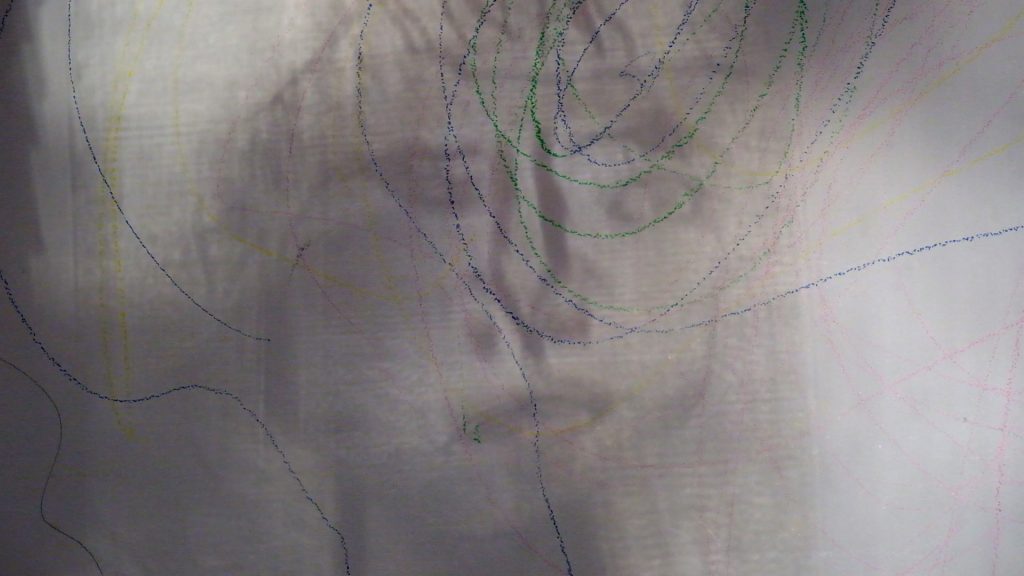
VRtualising Exhibitions: In Search of Novel Engagement Approaches In Experimental Museology. © Cvijeta Miljak
‘VRtualizing Exhibitions: In Search of Novel Engagement Approaches In Experimental Museology’
by Cvijeta Miljak
ABSTRACT
The research is carried out in the framework of a pan-European interdisciplinary project that brings together Aalto University School of Arts, Design and Architecture and ZKM – Center for Art and Media Karlsruhe (Germany), the Centre Pompidou, Paris (France), the Ludwig Muzeum, Budapest (Hungary), Tallin Art Hall (Estonia) and Tirana Art Lab (Albania), the institutions encompassing fields of cultural heritage, digital art conservation, digitalising heritage, new media art and experimental museology.In broadest terms, this artistic practice-based research in the emerging field of virtual museology is concerned with developing novel engagement approaches with the aim to encourage co-creative participatory practices for community involvement and social inclusion. The research will take a particular interest in documenting and studying museum audiences’ responses to digital cultural heritage and to virtual exhibitions. The research will support further development and implementation of Performance-oriented Design Methods for Audience Studies and Exhibition Evaluation (PORE), a methodology coined by Lily Díaz-Kommonen.
Miljak’s interest focuses on exploring emerging narratives, visual language and implications of digital tools in relation to immersive media, through developing methods for nonintrusive participatory evaluation practices to re-examine and expand forms of storytelling in digital media.
BIO
Cvijeta Miljak is a doctoral candidate working as a researcher with Prof. Lily Díaz -Kommonen on the Creative Europe co-funded project Beyond Matter – Cultural Heritage on the Verge of Virtual Reality (2019-2023).
For a more detailed bio, please check:
‘Gamification In Mixed-Reality for Digital Cultural Heritage’
by Gautam Vishwanath

